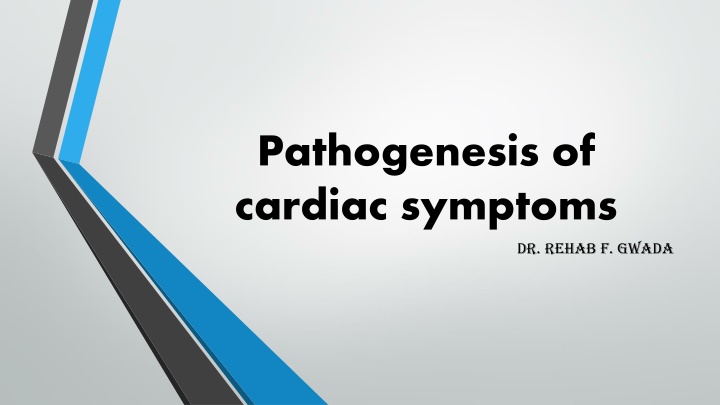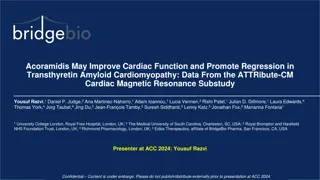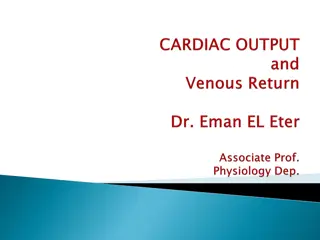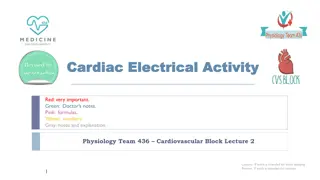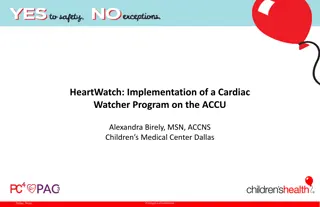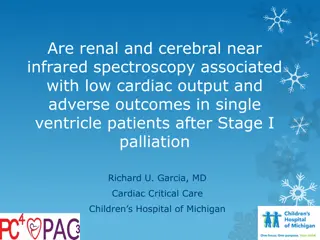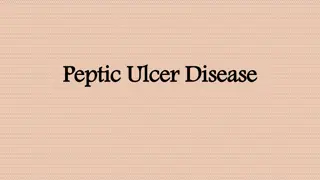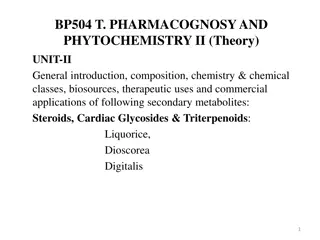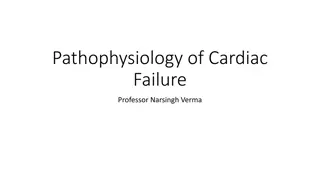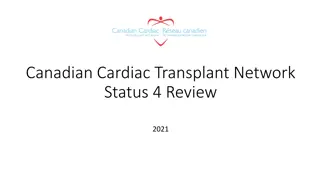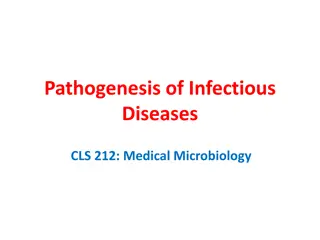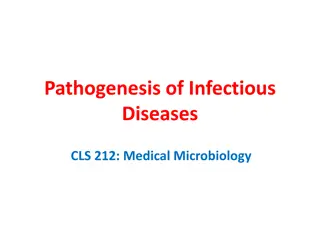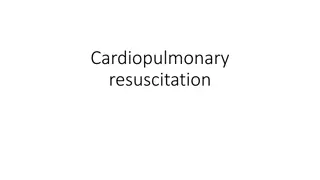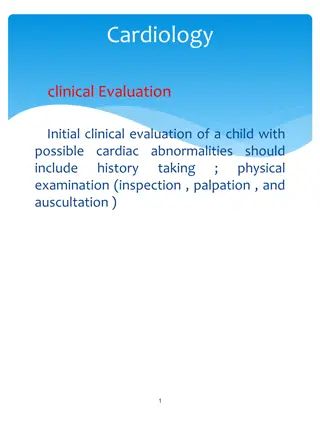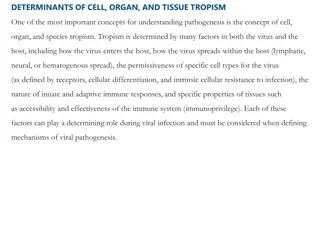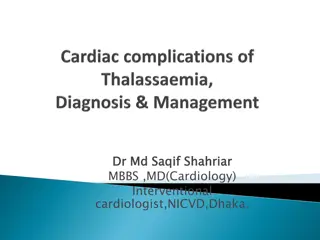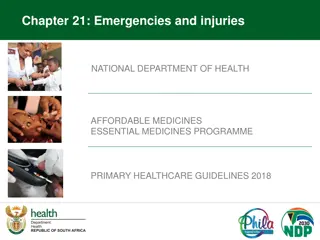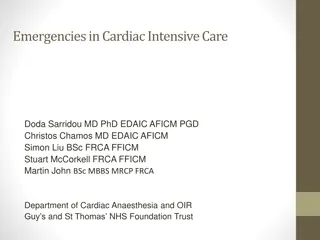Cardiac Symptoms and Pathogenesis Overview
In-depth exploration of various cardiac symptoms such as chest pain, syncope, and fatigue, along with their pathogenesis and causes. Detailed information on different types of chest pain, syncope definitions, and underlying factors leading to fatigue in heart disease patients.
Download Presentation

Please find below an Image/Link to download the presentation.
The content on the website is provided AS IS for your information and personal use only. It may not be sold, licensed, or shared on other websites without obtaining consent from the author.If you encounter any issues during the download, it is possible that the publisher has removed the file from their server.
You are allowed to download the files provided on this website for personal or commercial use, subject to the condition that they are used lawfully. All files are the property of their respective owners.
The content on the website is provided AS IS for your information and personal use only. It may not be sold, licensed, or shared on other websites without obtaining consent from the author.
E N D
Presentation Transcript
Pathogenesis of cardiac symptoms Dr. Rehab F. Gwada
The main symptoms of cardiac diseases Chest pain Edema * Palpitatio ns * Dyspnea * Fatigue Syncope Cyanosis*
Chest pain 1-Anginal pain: character of pain : Squeezing, crushing , burning , compression Pathogenesis: Narrowing of the coronary arteries Site: retro-sternal Radiation : Lt. Shoulders inside the left arm- throat, jaws and teeth then to back, and rarely to the right arm Duration: 1-5 minutes less than 15 min Aggravated by : Exercise- emotion- heavy meals ,cold Relieved by : Rest & nitrates
Chest pain 2-myocardial infarction : character of pain : similar to angina but more sever Pathogenesis: Complete blocking of the coronary arteries Site: retro-sternal Radiation : Lt. Shoulders inside the left arm- throat, jaws and teeth then to back, and rarely to the right arm Duration: prolonged Aggravated by : ----------- Relieved by : ---------- --- -
chest pain 3- Dissecting aortic aneurysm It is a sharp sever pain penetrating through to the back. 4- Esophageal spasm. It is usually possible to elicited some history of chest pain to food or drink intake. 5- Musculoskletal chest pain It is brought by exertion but often does not cease instantly on rest and it is very commonly accompanied by local tenderness over a rib or costal cartilage
Syncope Defination : it is a temporary loss of consciousness and posture, described as "fainting" or "passing out resulting from an inadequate blood supply to the brain due to : Sudden vasodilatation Sudden fall in cardiac out put Or both simultaneously.
Causes of syncope Heart block tachycardia hamorrhage diabetic pre coma cough syncope increased intra-thoracic pressure VR cerebral blood flow antihypertensive drugs. H.F. -Aortic stenosis
Fatigue Fatigue is a common complaint of patients with heart disease extreme tiredness & exhaustion It also have several origins (depression, general deconditioning, pharmacologic management and sides effect, in addition to physiologic limitation , as seen in individual with cardiac muscle dysfunction). Grading of fatigue as grading of dyspnea.
Characters of cardiac-related fatigue recent onset. Beginning the day with relatively normal energy level, then becoming increasingly tired through the day to the point of exhaustion. People who feel tired when they awaken and remain tired throughout the day with little variability are more likely to have a psychological disorder
Fatigue Exercise intolerance and fatigue are often the most common symptoms of heart failure. This tiredness or fatigue occurs because less blood reaches the muscles and tissues, due to the reducing pumping ability of the heart. The body diverts blood away from the less vital organs, such as the muscles in the limbs, and sends it to the heart, brain and kidneys instead. Fatigue can also occur because the body is not removing waste products as quickly as it should.
Thank you Thank you
